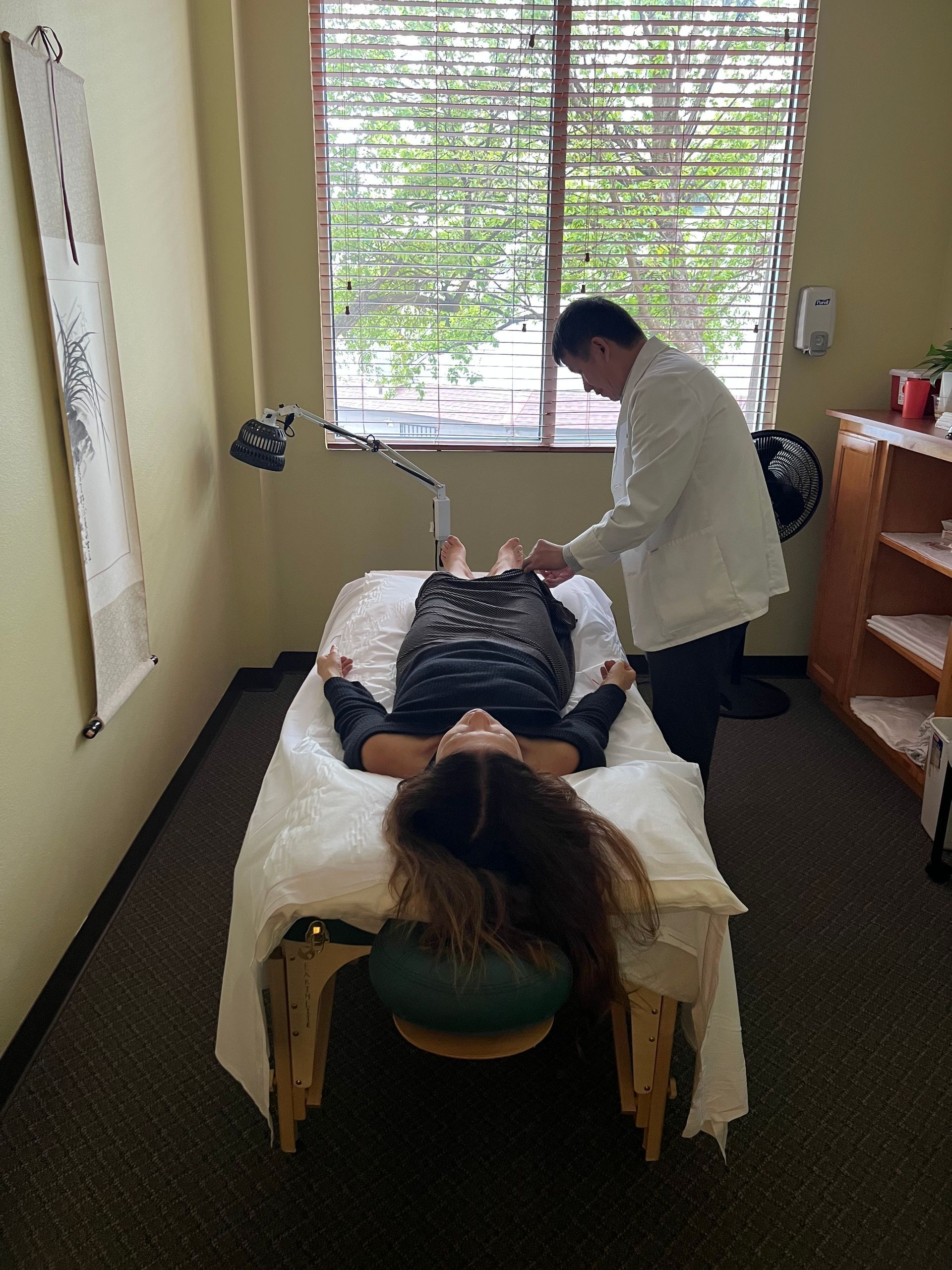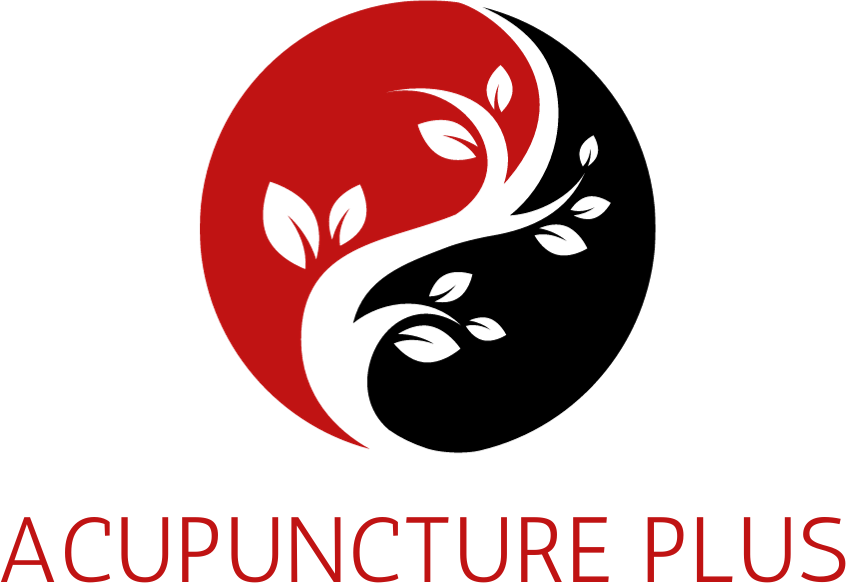Book an appointment
Austin Traditional Chinese Medicine (TCM) -
Ancient Healing For Modern Times

At its core, Traditional Chinese Medicine views the body as a complex system where physical, mental, and spiritual elements are intricately connected.
Unlike Western medicine, which often targets specific symptoms or diseases, TCM addresses the person as a whole. This holistic approach emphasizes the harmonious balance of Qi, the vital life energy that flows through the body whereby principles, good health is a result of the unobstructed flow and balance of Qi.
When Qi is disrupted, it can lead to various ailments. TCM therapies such as acupuncture, herbal medicine, and Tai Chi are designed to restore this balance, ultimately promoting the body's natural healing processes.
Traditional Chinese Medicine incorporates the concept of Yin and Yang, which represent opposite yet interconnected forces within the body. Yin symbolizes qualities such as coolness, rest, and internal processes, while Yang represents heat, activity, and external functions. Health is maintained when Yin and Yang are in harmonious balance. TCM practitioners diagnose and treat illnesses by assessing the state of Yin and Yang in the body. For instance, if there is an excess of Yang energy, it might manifest as symptoms like inflammation or restlessness. TCM therapies aim to restore the equilibrium between Yin and Yang, allowing the body to function optimally. In essence, TCM offers a holistic understanding of the body and its interconnectedness with nature, providing valuable insights into achieving and maintaining overall well-being.
Core Principles of Traditional Chinese Medicine
Here are the foundational tenets of Traditional Chinese Medicine (TCM).
Qi (Vital Energy)
Central to TCM philosophy is the
concept of Qi, the vital life energy that flows through the body via meridians or pathways. Qi is the force behind all bodily functions, maintaining life and promoting vitality. When Qi is abundant and flows smoothly, it signifies good health. TCM practices aim to balance and harmonize Qi, ensuring its unobstructed flow to promote overall well-being.
Yin and Yang (Balance and Harmony)
Yin and Yang represent the dualistic nature of the universe, embodying opposite but interdependent qualities. Yin is associated with qualities like stillness, darkness, and cold, while Yang embodies activity, light, and heat. Body health is maintained when Yin and Yang are in perfect balance, and TCM treatments work to identify and correct these imbalances, aiming to restore equilibrium between Yin and Yang.
The Five Elements (Wood, Fire, Earth, Metal, Water)
The Five Elements represent different phases and their relationships within the natural world. Each element corresponds to specific organs, tissues, and body functions. Wood represents growth and flexibility, Fire symbolizes transformation and energy, Earth signifies stability and nourishment, Metal embodies strength and clarity, and Water represents fluidity and adaptability. Health is believed to be maintained when these elements are in balance.
How TCM Complements Western Medicine
TCM excels in addressing chronic conditions, pain management, and enhancing overall well-being. When integrated, it can provide patients with a more comprehensive range of therapeutic options. For instance, acupuncture can effectively alleviate chronic pain and manage conditions such as migraines and arthritis. Herbal remedies from TCM are often used to enhance the immune system and mitigate side effects of treatments like chemotherapy. By addressing the root causes of sickness and promoting the body’s natural healing processes, TCM complements the symptomatic approach of Western medicine, creating a more holistic and personalized patient experience.
Traditional Chinese Medicine and modern, western medicine are both important in achieving optimal health. By using both modern diagnostics and treatments and the ancient, natural healing of herbs and acupuncture, healthcare can truly become patient-focused, holistic, and ultimately more effective in promoting overall health and well-being.
Diagnostic Methods in TCM
Traditional Chinese Medicine Practitioners utilize four diagnostic methods to assess patients: Inspection, Listening & Smelling, Inquiring, and Palpation.
-
Inspection
Through visual observation, practitioners carefully examine patients' vitality, complexion, tongue, and bodily secretions for any signs of abnormalities.
-
Listening & Smelling
To identify any irregularities in patients' sounds, such as respiration, and to detect odors emitted from their breath, secretions, and excretions, which helps in diagnosing their conditions.
-
Inquiring
Asking about observable symptoms, signs, and relevant medical history to assist in diagnosing illnesses and monitoring their progression.
-
Palpation
By assessing the pulse and applying pressure to specific body parts, one can predict pathological changes and organ functions.
Acupuncture in TCM
Acupuncture, a cornerstone of Traditional Chinese Medicine (TCM), is a therapeutic practice that involves inserting thin, sterile needles into specific points on the body. These acupuncture points are located along meridians, channels through which Qi, the vital life energy, flows. The careful stimulation of these points serves to unblock the flow of Qi, restoring balance and harmony within the body.
Each acupuncture point is associated with specific organs and bodily functions. By targeting these points, acupuncturists aim to correct imbalances, promote natural healing, and alleviate various health conditions. The meridians, akin to energy highways, facilitate the smooth circulation of Qi, ensuring the body's systems function optimally.
The benefits of acupuncture are wide-ranging. It's renowned for its ability to reduce
chronic pain,
manage stress and anxiety, enhance the immune system, and improve overall well-being. Acupuncture is often utilized to address conditions such as
migraines,
back pain, arthritis, insomnia, and even
fertility issues. This ancient practice not only offers relief but also embodies the holistic essence of TCM, treating not just symptoms but the underlying imbalances, providing a holistic approach to healing that has stood the test of time.
Health Conditions Treated with Traditional Chinese Medicine
Here are some health conditions managed with TCM, including:
- Pain management
- Digestive disorders
- Respiratory conditions
- Women's health issues
- Mental health and stress
- Allergies and immune system support
In each of these areas, TCM adopts a holistic perspective, focusing not just on symptom relief but on addressing the underlying imbalances within the body. By harmonizing Qi, balancing Yin and Yang, and promoting overall vitality, TCM offers a comprehensive and natural approach to health and healing.
-
Holistic Lifestyle and Nutrition
In TCM, regular exercise is seen as essential for the smooth flow of Qi and blood, vital for maintaining health. It particulary favors practices like Tai Chi and Qi Gong, with their gentle, flowing movements. These exercises not only enhance physical flexibility and balance but also promote mental calmness, aligning the body's energies for optimal functioning.
TCM recognizes the profound impact of stress on health. Stress disrupts the flow of Qi and can lead to imbalances in the body. Therefore, stress management techniques like meditation, deep breathing, and acupuncture are encouraged. Mindfulness practices, rooted in ancient Taoist and Buddhist traditions, are integral to TCM’s approach. Cultivating awareness of the present moment not only reduces stress but also fosters emotional balance and overall well-being.
-
Exercise and Movement
To identify any irregularities in patients' sounds, such as respiration, and to detect odors emitted from their breath, secretions, and excretions, which helps in diagnosing their conditions.
Traditional Chinese Medicine FAQs
-
Is Chinese Medicine scientifically proven?
Yes, many components of Traditional Chinese Medicine (TCM) have been subject to scientific research. While not all aspects of TCM have been scientifically proven, several studies have demonstrated the effectiveness of treatments like acupuncture for various conditions, and ongoing research continues to explore the mechanisms behind TCM practices. It's important to note that TCM often takes a holistic approach, which can be challenging to measure solely through conventional Western scientific methods. However, the integration of TCM with evidence-based practices is becoming increasingly common in modern healthcare systems.
-
Is Traditional Chinese Medicine safe?
When practiced by licensed and qualified practitioners, TCM treatments such as acupuncture and herbal medicine are generally safe. However, it's crucial to consult with a trained professional who can assess your specific health needs and provide tailored treatments. Always inform your TCM practitioner about your medical history, existing conditions, and any medications you are taking to ensure a safe and effective treatment plan.
-
How long does it take to see results with Traditional Chinese Medicine?
The duration to observe results with TCM varies widely based on individual health conditions, the nature of the ailment, and the chosen treatment method. While some people experience improvements after a few sessions, chronic or complex conditions might require more extended and consistent treatment. TCM often emphasizes a gradual, holistic healing approach, aiming to address the root cause of the problem rather than just alleviating symptoms quickly.
-
Can I combine Traditional Chinese Medicine with Western medicine?
Yes, many individuals choose to combine TCM with Western medicine, a practice known as integrative or complementary medicine. In fact, collaboration between TCM practitioners and Western healthcare providers is encouraged in many cases. It's important to inform all your healthcare providers about the treatments you are receiving, ensuring that they can work together to provide you with the most comprehensive and safe care possible. Integrating TCM and Western medicine can offer a well-rounded approach to health and healing.
Testimonials
Dr. Wang is amazing. I have gone to him for years for help with anything that Western medicine could not treat effectively. Few acupuncturists know so much about both Chinese herbal medicine and acupuncture! He has sure helped me with asthma, foot pain, menopause, colds - you name it... I always feel better after seeing him.
Anne B.
Dr. Wang and his associates have a very efficient, effective Chinese Medicine Practice. Very patient...listen well...sensitive to problems. I love his brand of Accupuncture--would refer to everybody!!!
Carol M.
Visit Our Austin Acupuncture Clinic
Address
11851 Jollyville Road, Suite #102, Austin, Texas 78759
Phone
Fax
512-453-5318
info@AustinAcupuncturePlus.com
